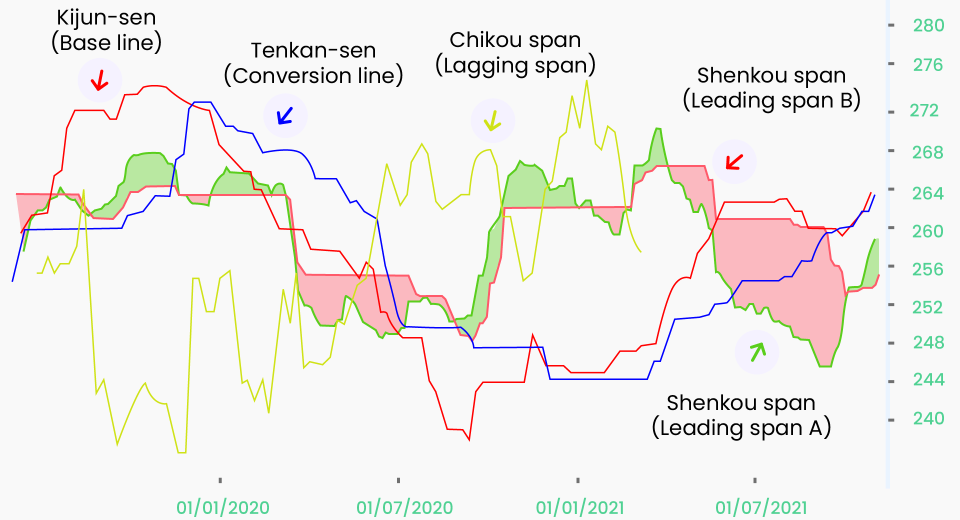How to Master Trading Psychology?

Forex trading per day exceeded $7.5 trillion in April 2022 worldwide, while global equity trading surpassed $41 trillion in the third quarter of 2021. But there are many more instruments, such as ETFs, indices and cryptocurrencies being traded every day. Such massive flow of capital into the financial markets highlights the number of daily active traders. Despite access to all the news event updates and advanced technical analysis, every trader traverses a different journey. What distinguishes one trader from another is their trading psychology.
What is Trading Psychology?
In layman’s terms, trading psychology helps traders to manage gains, losses, risks and their trading plan with equanimity.
Traders need to build a strong trading mindset to remain rational during challenging market conditions. Building a strong trading psyche can help traders to:
- Identify their dominant emotions.
- Discover the triggers that motivate them to deviate from their trading plan.
- Devise mechanisms to cope with these triggers.
Trading Emotions
Two dominant emotions that drive traders’ behaviours are greed and fear. These emotions give rise to biases that can lead them to make poor trading decisions and spiral into suboptimal trading patterns.
Greed makes a trader take larger positions than their risk appetite, trade more often, and hence overtrade.
Fear, on the other hand, prevents or delays traders from opening positions or forces them to exit prematurely, making them miss out on trading opportunities.
These two emotions give rise to 10 other trading emotions: hopefulness, optimism, false belief, euphoria, nervousness, refutation, terror, distraction, horror and hopelessness.
These emotions can lead to multiple biases that affect trading. Here are some of the most common ones.
Gambler’s Fallacy
This occurs when a trader bypasses logic and technical analysis due to hope. They make trading decisions hoping they will win, rather than strong market analysis.
Anchoring Bias
Past success makes traders believe they will succeed again and greed leads them to ignore technical indicators and market sentiment.
Hindsight Bias
This is quite common with the ever-online Gen Z and millennials due to the information overload. Greed often makes them believe that ALL signals can be and must be utilised, irrespective of their trading strategy.
Confirmation Bias
Often, ego forces traders to believe that the market moved in the wrong direction! This makes them ignore the fact that the market does not satisfy anybody’s needs. It moves and traders need to make their decisions according to these moves.
Negativity Bias
Sometimes traders tend to believe that the regret of not taking a position is better than the regret of losing. However, missing out on opportunities only leads to dissatisfying trading experiences.
Build a Strong Trading Mindset
While 58% of investors agree that keeping emotions out of trading decisions improves the performance of their portfolio, 47% find it difficult to practise this. While emotions are only human, controlling strong emotions is one of the critical traits of a successful trader. Traders must never let their feelings push them to behave against what analysis and their trading plan advise. A strong trading psyche helps them do so by enabling them to make rational trading decisions.
Some methods to master trading psyche are:
Identify Your Personality
Understanding your trading personality is the first step to controlling unhelpful emotions. For instance, do you prefer quick ins and outs, or do you like to trade once or twice a day? This can help you identify trading strategies and instruments that will suit your mindset the best. A restless trader with high anxiety cannot wait for days or even hours to see the result of an open position. For them, scalping or high-frequency trading might be better.
Finalise a Trading Plan
Once the strategies and markets that suit your trading persona are identified, it is time to develop a trading strategy. This is the time to quantify your trading goals, risk appetite, capital available, percentage of the capital you are comfortable risking per trade, etc. Trading duration, and break time must also be kept in mind, since trading without breaks can cause burnout and impair judgment.
Quantifying and documenting these aspects give you a way to cross-check whether your trading decisions bypasses any of these trading metrics.
Practice on a Demo Account
Experienced traders prefer to practice a new strategy, technical indicator or trading a new instrument before entering the live markets. Demo accounts offer a risk-free means to familiarise yourself with the market and the situations where you tend to lose emotional control. You can then prepare a list of market conditions that lead you to behave irrationally and plan how to act when such conditions arise. At such times, you could decide to take a break from trading or continue with your established trading plan.
Assess Your Trading Performance
At this stage, you can refine your trading strategies and align them to your trading psyche. A great way to do this is to maintain a trading journal and track all your trades. It is essential to objectively analyse trading results for each position, session and month. This helps discover weaknesses and trading patterns that do not serve you well.
Strengthen Your Trading Psychology
“Trading doesn’t just reveal your character; it also builds it if you stay in the game long enough.”
~ Yvan Byeajee
Trading mindfully takes patience and practice. As Byeajee says, it builds your character by embedding rational judgment into your decision-making processes. Reading books and learning from expert traders to control your emotions and ensure that trading decisions remain objective can be helpful. That may take some time though.
Dos and Don’ts to Master Trading Psychology
| Dos | Don’t |
| Reach for trading goals | Chase Profits |
| Snap out of a trading position if your loss limit or trading plan says so | Let hope or greed keep you in a trade longer than you should |
| Focus on improving overall trading performance | Focus on making profits on each trade |
| Accept, analyse and move on | Argue with the market |
| Reason what caused a deviation from trading plan and work on eliminating the behaviour | Try to justify your deviation from the trading plan |
| Remain true to your trading plan and follow it | Delude yourself into believing that you stuck to the plan by seeking shortcuts |
| Acknowledge the risk potential of each position and ensure that it lies within your risk tolerance level | Ignore profit targets or stop losses just because an opportunity seems to have higher chances of success |
| Build confidence in a trading plan that works for you and your trading goals over a long period and under diverse market conditions | Quit your job after making a few successful trades |
Disclaimer:
All data, information and materials are published and provided “as is” solely for informational purposes only, and is not intended nor should be considered, in any way, as investment advice, recommendations, and/or suggestions for performing any actions with financial instruments. The information and opinions presented do not take into account any particular individual’s investment objectives, financial situation or needs, and hence does not constitute as an advice or a recommendation with respect to any investment product. All investors should seek advice from certified financial advisors based on their unique situation before making any investment decisions in accordance to their personal risk appetite. Blackwell Global endeavours to ensure that the information provided is complete and correct, but make no representation as to the actuality, accuracy or completeness of the information. Information, data and opinions may change without notice and Blackwell Global is not obliged to update on the changes. The opinions and views expressed are solely those of the authors and analysts and do not necessarily represent that of Blackwell Global or its management, shareholders, and affiliates. Any projections or views of the market provided may not prove to be accurate. Past performance is not necessarily an indicative of future performance. Blackwell Global assumes no liability for any loss arising directly or indirectly from use of or reliance on such information herein contained. Reproduction of this information, in whole or in part, is not permitted.




